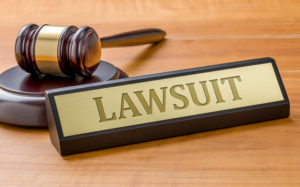Brain injury cases are complicated and the legal system is incredibly complex. If you choose to pursue a case against the party responsible for your injuries, you will likely be faced with a team of opposing attorneys, especially if the other party is a company.
The other party’s attorneys may try to bully you into taking a lowball out-of-court settlement, banking on the fact that you don’t really know how much your injury will cost you.
If the defendant refuses to settle out of court, your case will proceed to litigation, a world totally unfamiliar to nonlawyers and governed by often counterintuitive rules of procedure and evidence.
You should not face that alone. You need a team of competent, compassionate, and aggressive California brain injury lawyer on your side who can fight for every dollar of compensation you deserve. More importantly, you need attorneys experienced in dealing with TBI issues in regards to your case.
What Makes a Good Brain Injury Attorney

A good brain injury attorney is one who will be able to evaluate your case, give you a competent legal opinion on its merits, and develop a plan for proceeding through our complicated legal system. They will have the skills and experience to interact with the opposing party or parties, and the understanding of factors that determine how much financial compensation you may be entitled to.
In addition, a competent brain injury attorney will:
- Understand the science of brain injuries. The attorney you trust with your case needs a thorough understanding of the science behind the cause, symptoms, treatment, and effects of your injury. Your case could require medical experts with varying specialties to testify at trial. If your attorney does not himself understand these complicated issues, he cannot question the expert in such a way that the people who will make up your jury can understand. If the jury does not understand the extent of your injury or how that injury could affect the rest of your life, your recovery for damages may be smaller than it would be otherwise. Or jurors could simply decide to award you nothing.
- Have access to qualified experts. Complex issues often require expert testimony from specialists in one or more scientific or medical fields. An experienced brain injury attorney has established relationships with qualified people who can provide this critical testimony at your trial. If your case is unique enough to require an expert that your attorney does not presently know, a lawyer who specializes in these cases will be able to understand the need for that person’s expertise and know-how to find a competent expert witness.
- Understand how a brain injury affects the survivor. A good brain injury attorney will go above and beyond to understand what a survivor and his family are going through. A good brain injury attorney will also help the survivor to understand the different treatment options and will have access to resources to help them.
- Understand the court system. Our legal system is complicated and taking a case from evaluation through jury deliberation and verdict requires skill, intuition, a thorough knowledge of the law and court procedures, and legal savvy. A complex case in a complex system requires even more of your attorney. Choose a lawyer who focuses on these kinds of cases and has seen them through the entire process.
- Understand that a brain injury cases not like other personal injury cases. A good brain injury attorney will understand that brain injury cases are more expensive, more time-consuming, and more risky than other personal injury cases. You want an attorney that not only has the financial and personal resources to help, but also the knowledge and confidence to handle your case.
What Your Brain Injury Attorney Will Do – 8 Steps
Every injury is different and every legal action based on a brain injury is different. Depending on the specifics of your case, your attorney may do some or all of the things listed below. It is important to remember, though, that the State of California requires that you file most legal actions against the responsible party within two years of the date of your injury (this is the statute of limitations), so speak to an attorney about your case as soon as possible. If your cases against a government entity, the statute of limitations may be as short as six months. If it is against a medical provider, the statute is one year.
After your initial case evaluation, if the attorney believes your case has merit, the progression of your lawsuit might follow a timeline that looks something like the following. Note that because each case is unique, the order might vary, that all steps may not be necessary in all cases, and that additional steps may need to be taken.
Step 1 – Determine the Appropriate Defendant or Defendants
Who should bear responsibility for your injuries? A simple-sounding question can become complicated in a hurry depending on the facts of your case. If you were injured in a vehicle accident, the driver of the car is certainly going to be a defendant. But what if that person was driving during the course of his employment? Is his employer liable for your injuries as well? If your injury was caused by a fall in a public place due to poorly maintained property conditions, is the owner of the property liable? What if the property was occupied by a tenant or you were injured by the actions of a maintenance contractor who was present at the time? Are there insurance companies that should also be joined in the suit?
Step 2 – Attempt Pre litigation Negotiations With the Responsible Parties
It likely goes without saying that if you pursue the wrong party, your chances of recovery are zero. The other party can petition the court to dismiss your suit entirely, and if the court grants the motion, you are left starting over from the beginning, or may not be able to proceed at all.
Step 3 – Timely File Your Lawsuit
If your suit is not filed within the applicable statute of limitations, you will be barred from recovering for your injuries. Is pre-filing negotiations fail, your attorney will shortly thereafter begin preparing your case to file with the courts. This step also includes providing service of process (notice of the lawsuit) to the defendant or defendants.
Step 4 – Proceed With Discovery and Litigation
Immediately after the case begins, the parties will begin exchanging information. This is called discovery. A good attorney will know what to ask for and how to ask for it.
The opposing party can may motions to dismiss, or a motion for summary judgment on one or more claims asking the court to rule on an issue that will then not proceed to trial. The California Code of Civil Procedure sets forth the deadlines for filing and responding to pretrial motions and attorneys must ensure that they provide timely responses to the opposing party’s motions. A good TBI attorney will be well-versed in handling TBI issues.
Step 5 – Conduct Depositions
You attorney may likely conduct depositions of potential witnesses. Depositions are sworn out-of-court testimony which can be conducted in person or in writing. At an in-person deposition, lawyers may be present, but their ability to object to questioning is somewhat limited. Depositions are useful for information-gathering and preparing the case for trial.
Step 6 – Subpoena and Prepare Witnesses
To competently present your case, your attorney will call witnesses to testify to a variety of issues concerning the facts of your situation. To ensure that they appear at trial, your lawyer will issue subpoenas, written orders demanding that they appear in court. Before their appearance, your attorney may meet with them and prepare them to testify by going over their knowledge of your case, asking them questions the opposing party’s attorney will likely ask them, and making sure they can answer questions in a succinct and useful way.
Step 7 – Retain the Services of Experts
Because brain injuries are complex, it is almost always necessary to bring in expert witnesses who can testify to the scientific, medical, or financial aspects of the case. Your attorney might find it useful to use doctors, therapists, psychologists or psychiatrists, or financial experts to determine the amount of damages. It is then the job of the lawyer to prepare the experts for trial by understanding their testimony and ensuring that the witness can break down complicated issues in a way that lay jurors can understand and use in reaching their verdict.
Step 8 – The Trial
If your case does not settle before trial (see below), your case will proceed and be heard by a jury. Jury trials require a unique set of skills that not all attorneys possess. Jury selection is an entire field on its own. Because juries are made up of human beings who bring their own biases, world views, and experiences to their service, the people selected to hear your case and determine the damages you are entitled to are critically important to your case’s outcome.
Experienced trial attorneys may use consultants and conduct mock trials before the case ever even gets to a courtroom. Jury selection is a skill that can only be perfected by training and practice, and you want a lawyer who understands the psychology of jurors and the right types of characteristics to look for in the people who will hear your case.
Once a jury is impaneled, the parties will each present an opening statement. An opening statement is your attorney’s chance to tell the jury your story without presenting actual evidence. She will tell the jury what happened to you, how it has affected you and your family, and who you should find responsible for the damages. The defendant’s attorney will then tell his client’s version of the story. At that point, the jury knows what kind of case it is hearing and, if your attorney has done her job well, what evidence to look for as the case is presented.
After opening statements, your attorney will put on your case by calling witnesses and presenting evidence gathered through the discovery process and when she is finished, the defendant will present his side of the story. This period of the trial is the most lengthy. The witnesses your attorney calls will be asked questions by her during what is called direct examination. Once your attorney has asked all her questions, the defendant’s attorney conducts a cross examination during which he asks the witness his own questions based upon the answers given during direct examination.
The final stage of the trial is the closing arguments phase. Each attorney will give a summation of the evidence the jurors have seen and tell them why they should find for their client’s side.
Once the jurors have heard all of the evidence and closing arguments, the judge will instruct them as to how they are to evaluate the evidence and which law applies to the case in determining whether or not the defendant was at fault and how much to award in damages. When the jury retires to deliberate, the wait begins. This can be a nerve-wracking time as the jury may take all the time it needs to reach a verdict. Once the jury reaches a verdict, the judge receives notification and the jurors and parties are brought back into the courtroom where the judge will read the verdict and any damages awarded.
The facts of your case may be such that it is in your best interest to negotiate a settlement with the defendant, or it might be that your case is so clear-cut that the defendant does not wish to proceed to trial. A good brain injury attorney will be aware of settlement opportunities and willing to conduct negotiations along the way. That being said, your attorney will only encourage you to accept a settlement offer if she believes it is in your best interest. Ultimately, however, the decision to settle and for how much money is up to you.
Damages Your Brain Injury Attorney May Fight For
Every case is unique and requires a unique legal analysis of the damages that you may be entitled to. Depending on the facts of your situation, you may be entitled to damages related to your initial and ongoing medical costs, lost present and future wages, both physical and mental pain and suffering, the cost of mental health or other treatment, rehabilitation services, or loss of consortium. Damages are case-specific. A good brain injury attorney will evaluate the damages you could receive, and be able to counsel you as to potential settlement offers.
If you have lost a loved one to a brain injury caused by someone else’s negligence you may be able to bring a wrongful death lawsuit against the responsible party through which you could receive damages to compensate for pre-death medical expenses, funeral and burial costs, loss of financial support and consortium, and emotional pain and suffering.
Turn To John Gomez at the Gomez Firm
 To review, you will want someone who focuses on brain injury actions. Look for a firm with a team of compassionate, competent, and experienced attorneys who have dedicated their careers to helping people with brain injuries receive the compensation they deserve. While every case is different and there is no guaranteed outcome in any case, if you find someone with a proven track record of successful recovery for their clients, you stand a better chance of getting the compensation you need to pay for your needs.
To review, you will want someone who focuses on brain injury actions. Look for a firm with a team of compassionate, competent, and experienced attorneys who have dedicated their careers to helping people with brain injuries receive the compensation they deserve. While every case is different and there is no guaranteed outcome in any case, if you find someone with a proven track record of successful recovery for their clients, you stand a better chance of getting the compensation you need to pay for your needs.
Don’t face the prospect of fighting for the compensation you deserve alone. A brain injury lawyer can fight for your rights while you fight to heal and reclaim your life. If you’d like more assistance the professionals at Gomez Trial Attorneys are ready to assist you today.







